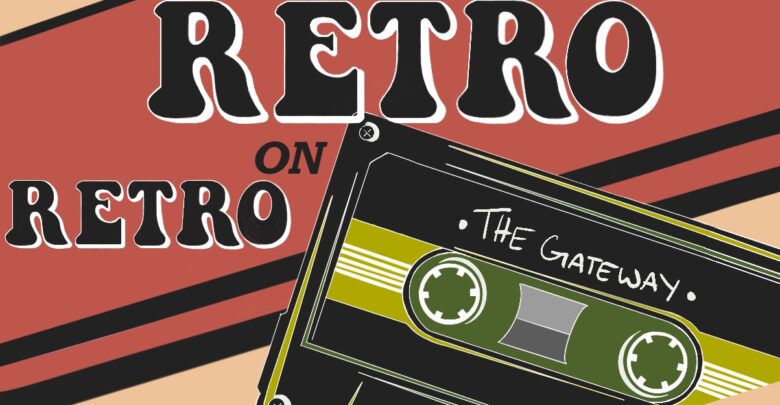Retro on Retro: “Dilwale Dulhania Le Jayenge” 1995
By breaking the mold, the Bollywood romantic comedy greatly impacted India's movie industry, which in-turn created its long-lasting legacy.
 Jenny Chahal
Jenny ChahalDilwale Dulhania Le Jayenge (DDLJ) is a 90’s Bollywood romantic comedy. Directed by Aditya Chopra, it is the love story of Raj (Shah Rukh Khan) and Simran (Kajol).
The intimate narrative starts with them sparking their romance in the picturesque locations of England and Switzerland. The couple commits to their soul-stirring love in Punjab’s mustard fields, where Simran arrives with her family for her arranged marriage to another man. But Raj and Simran secretly fall in love more and more, despite Simran’s father being adamant against their relationship. The story ends with her father finally approving after realizing their unconditional love and ardent passion for each other. Finally, they marry.
For the 90s, DDLJ had a modern take on relationships. It inspired fashion and started the trend of rom coms in Bollywood. Said to have portrayed the epitome of love, DDLJ trademarked sheer passion and sketched well-timed humour.
Following the film’s release, an array of Hindi films started intertwining Indian culture with an international brand of filmmaking. DDLJ did something that hadn’t been done before — it ushered in a new era of setting films abroad while still keeping Indian customs at the front and centre of the story.
This film was also one of the major stepping stones for Khan. It propelled him to the league of big stars — he was crowned as the King of Romance, followed by a more prevalent title, King Khan. However, the film’s impact was not restricted to Khan’s career. It also led to the overly beloved on-screen couple, Kajol and Khan, being cast together in many other films including Kuchh Kuchh Hota Hai (1998), Kabhi Khushi Kabhi Gham (2001), My Name is Khan (2010) and Dilwale (2015).
DDLJ also created iconic dialogues that impact conversations today. “Senorita, bade bade deshon mein aisi chhoti chhoti baatein hoti rehti hain”, “Palat, palat, palat” and “Jaa Simran jaa, jee le apni zindagi” are quoted and enacted to this day by fans of all ages.
To truly experience the film’s magic, one can visit Maratha Mandir Theatre, an independent local theatre in Mumbai. There you will find a theatre packed with people, hooting, whistling, and reciting the iconic dialogues. DDLJ has been shown at the theatre at 11:30 a.m. everyday for the last twenty-eight years. This makes DDLJ India’s longest running film, and one of the longest running films in the world. Almost thirty years later, the film’s legacy continues to be preserved — on weekend showings of DDLJ, the theatre’s occupancy is often filled more than on afternoon screenings of new films.
DDLJ’s impact does not only span over time, but also across the world. In 2015, former United States president Barack Obama tried Khan’s “Senorita” dialogue from DDLJ in a speech.
DDLJ changed the meaning of romance in India’s film industry. One of the biggest reasons for its success was that it broke the monotony. The film highlighted romance, but also showcased the important sentiments of patriotism and feminism, along with balancing individualism with tradition. It struck a chord with the audience and still continues to fascinate us decades later. Like all others, time has curated this classic too.




